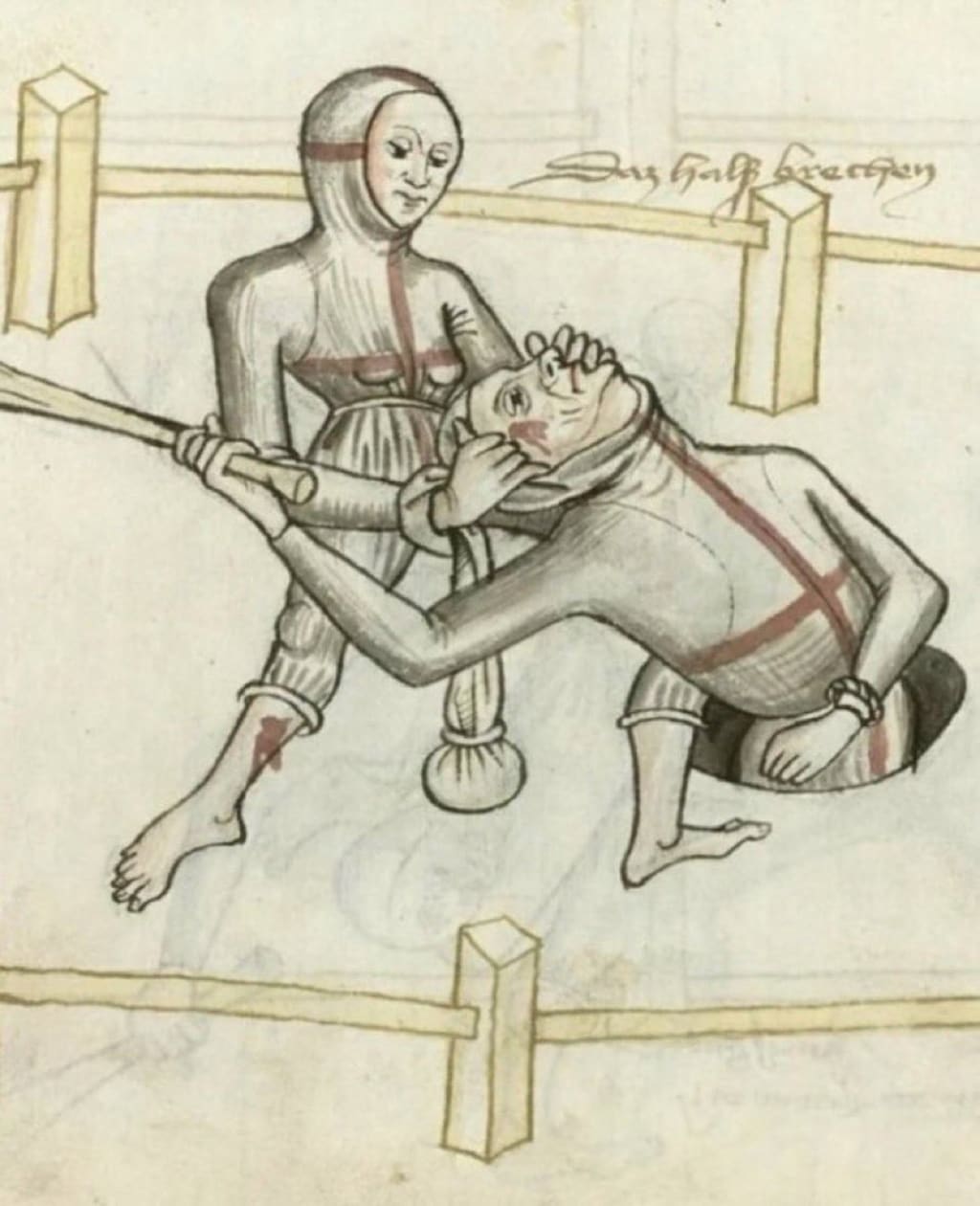Medieval Germany's Marital Duels
A Glimpse into a Gruesome Conflict Resolution

Looking back of history, there are many bizarre and brutal practices that shock the modern mind. One such practice is the marital duel of medieval Germany—a stark and gruesome method used by couples to settle their disputes. Unlike the romanticized notions of chivalric combat, these duels were desperate, dangerous, and often deadly. They offer a unique, albeit macabre, glimpse into the gender dynamics and societal norms of the time.
The Concept of Marital Duels
In medieval Germany, if a husband and wife found themselves unable to resolve their differences peacefully, they had the option of engaging in a marital duel. This was not a common practice, but it was legal and recognized as a legitimate means of settling serious disputes. The very existence of such a practice underscores the severity with which marital discord was sometimes viewed and the lengths to which society would go to maintain order.
The Rules of Combat
Marital duels were not conducted haphazardly; they were governed by a strict set of rules designed to level the playing field between the male and female combatants. Understanding these rules reveals much about the societal perceptions of gender and physical prowess.
The Man’s Handicap
To counterbalance the presumed physical advantage of the husband, he was required to fight with one arm tied behind his back. Furthermore, he was placed in a hole that reached up to his waist, effectively limiting his mobility and making it difficult for him to overpower his wife. This constraint forced the man to rely on strategy and endurance rather than brute strength.
The Woman’s Weapon
The wife, on the other hand, was armed with a sack filled with rocks. Additionally, she wore weighted clothing, which served a dual purpose: it slowed her movements, providing a counterweight to the husband's physical restrictions, and it symbolized the burden of her societal position. The sack of rocks was a formidable weapon, capable of inflicting significant injury if wielded effectively.
The Duel
The duel itself was a brutal and desperate affair. Couples would engage in combat until one of them was incapacitated or surrendered. The stakes were high, and the consequences of losing were dire. This was not a sport but a deadly serious endeavor, with each participant fighting for their survival and honor.
The Outcome
If the husband lost the duel, he faced execution by beheading—a swift and final end. If the wife lost, her fate was arguably even more horrifying: she would be buried alive. These severe punishments reflect the medieval view of marital harmony as a societal cornerstone, with extreme measures deemed necessary to enforce and preserve it.
Societal Implications
The practice of marital duels reveals much about the social and legal dynamics of medieval Germany. It highlights the patriarchal structure of the society, where even in combat, men were granted a perceived physical superiority that had to be mitigated by artificial means. Yet, it also shows that women were not entirely powerless; they had a recognized, albeit brutal, method to assert themselves in extreme situations.
Gender Dynamics
The weighted clothing and the sack of rocks given to women reflect the dual nature of their societal roles—both as burdens and as weapons. The physical encumbrance symbolizes the societal restrictions placed on women, while the weaponization of common household items underscores the domestic sphere in which women wielded their influence. The duel was a grim parody of marital conflict, with the battlefield serving as a stark metaphor for the struggles within the household.
Legal and Cultural Context
Legally, the existence of marital duels indicates a rigid and punitive approach to conflict resolution. Medieval society had limited mechanisms for divorce or marital counseling, and thus resorted to these extreme measures. Culturally, it reveals a fascination with trial by combat as a means of divine judgment—a belief that God would ultimately decide the righteous party in the duel.
The Historical Record
The exact frequency and geographical spread of marital duels are difficult to ascertain due to limited historical records. However, the fact that they were documented at all suggests that they were more than mere folklore. The detailed descriptions of the rules and outcomes imply that these events were taken seriously and followed prescribed legal procedures.
Reflection and Modern Perspective
From a modern perspective, the concept of marital duels is both fascinating and horrifying. It challenges our understanding of historical gender roles and conflict resolution. Today, the idea of resolving marital disputes through combat is unthinkable, replaced by more humane and rational approaches such as counseling and legal divorce. However, reflecting on these historical practices can provide valuable insights into how far society has evolved in terms of gender equality and conflict resolution.
Conclusion
The marital duels of medieval Germany serve as a stark reminder of the brutal realities faced by our ancestors. They reveal the extreme lengths to which society would go to enforce marital harmony and the severe consequences of failing to achieve it. While these practices are now relegated to the pages of history, they continue to fascinate and inform our understanding of medieval life, gender dynamics, and the evolution of societal norms.
About the Creator
Enjoyed the story? Support the Creator.
Subscribe for free to receive all their stories in your feed. You could also pledge your support or give them a one-off tip, letting them know you appreciate their work.






Comments
There are no comments for this story
Be the first to respond and start the conversation.